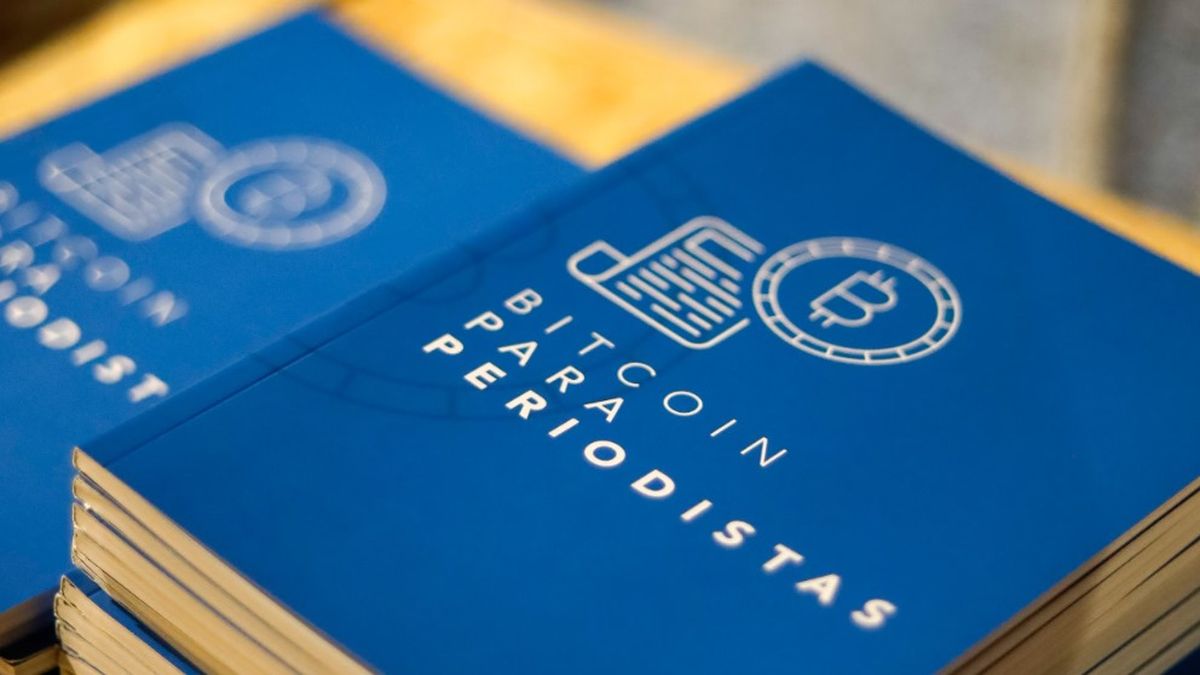In such a changing world, narratives and paradigms must also find spaces to reformulate. “Bitcoin for journalists” is the first global book that is specifically addressed to communicators and journalists, with the aim of providing clear, accessible and solid tools To understand and inform Bitcoin.
The author, Bruno Vaccotti, communicator, bitcoiner and educator, thus launches his second book as an open and free contribution to the free knowledge ecosystem.
The work was presented at an introductory workshop of three hours, where 31 journalists and communicators from Paraguay participated. During the activity, Vaccotti shared not only the foundations of this technology, but also the social, economic and political implications that Bitcoin represents for the journalism of the 21st century.
The activity was interactive, with questions and opinions of the participants, regional examples and a pedagogical approach, which facilitated the approach to a subject that is often wrapped in technicalities or myths.
“The book is not technical. It is written for journalists who want to understand without having to be programmers or economists. Because journalism needs context, it needs truth, it needs independence. And that is precisely what Bitcoin proposes: a form of money that does not depend on banks, governments or corporations. What could be more interesting to tell that?” Vaccotti said during the presentation.
The editorial proposal breaks with traditional dissemination structures. “Bitcoin for journalists” is not a guide on how to invest neither an empty promises manual. Instead, It is a critical literacy tool about money in digital times.
Throughout his chapters, the reader finds answers to frequent questions, disassembles common myths and enters fundamental issues such as self -ocustody, privacy, energy and technological sovereignty.
One of the most prominent aspects of the book is its approach from Latin America. Although Bitcoin is a global phenomenon, the text anchor in local problems, such as chronic inflation, financial exclusion and misinformation that still prevails in much of the traditional media in the region.
Paraguay, author’s country, appears as a recurring example, both for its sustainable mining potential thanks to hydroelectric energy, as for its strategic position in the energy and digital debate of the region.
Vaccotti had previously published Dive Into Bitcoina material oriented to the general public. With this second installment, it changes focus and speaks directly to those who build narratives: reporters, chroniclers, producers, editors.
“The way we communicate about Bitcoin today will define how it will be understood tomorrow. You have to get out of the cycle of fear, ignorance and sensationalism. And for that, you must first study,” explained the author, who defines himself as a maximalist Bitcoiner, but also as a facilitator committed to critical thinking.
The book is available completely free, in digital format, and its distribution is made under open licenses that allow its copy, reproduction and adaptation. This editorial decision responds to an author’s conviction: Essential financial and technological information should not be a privilege of elites, but a collective right. In that sense, the book functions as a kind of “vademécum bitcoine” for writings, communication faculties and freelance journalists.
Positive reception
The reception of the material in the workshop was very positive. Written, radio and digital media journalists participated, as well as advanced communication students. Many of them expressed that it was the first time they accessed an understandable and honest explanation about Bitcoin, No advertising dyes or ideological prejudices.
The event was also a space for debate about the current challenges of communication in times of technological transformation. How to maintain journalistic ethics in an algorithmic world? What does it mean to be independent when financing models depend on centralized platforms? Can we imagine a media ecosystem where money is not a control tool, but of empowerment? These questions, beyond the book, They open a deeper conversation, which just begins.
“Bitcoin for journalists” is already circulating by writings, community radios and digital media in several Spanish -speaking countries. Its author anticipated that he will continue offering workshops And that already works in an enlarged version of the bookwith testimonies of journalists who have found in Bitcoin not only news, but a cause.
In a time where the truth seems fragile, this book proposes an anchor: learn, understand and then inform. Because, in his opinion, “those who print the money, also print the headlines. Except someone is encouraged to tell another story.”
Source: Ambito
I am an author and journalist who has worked in the entertainment industry for over a decade. I currently work as a news editor at a major news website, and my focus is on covering the latest trends in entertainment. I also write occasional pieces for other outlets, and have authored two books about the entertainment industry.




